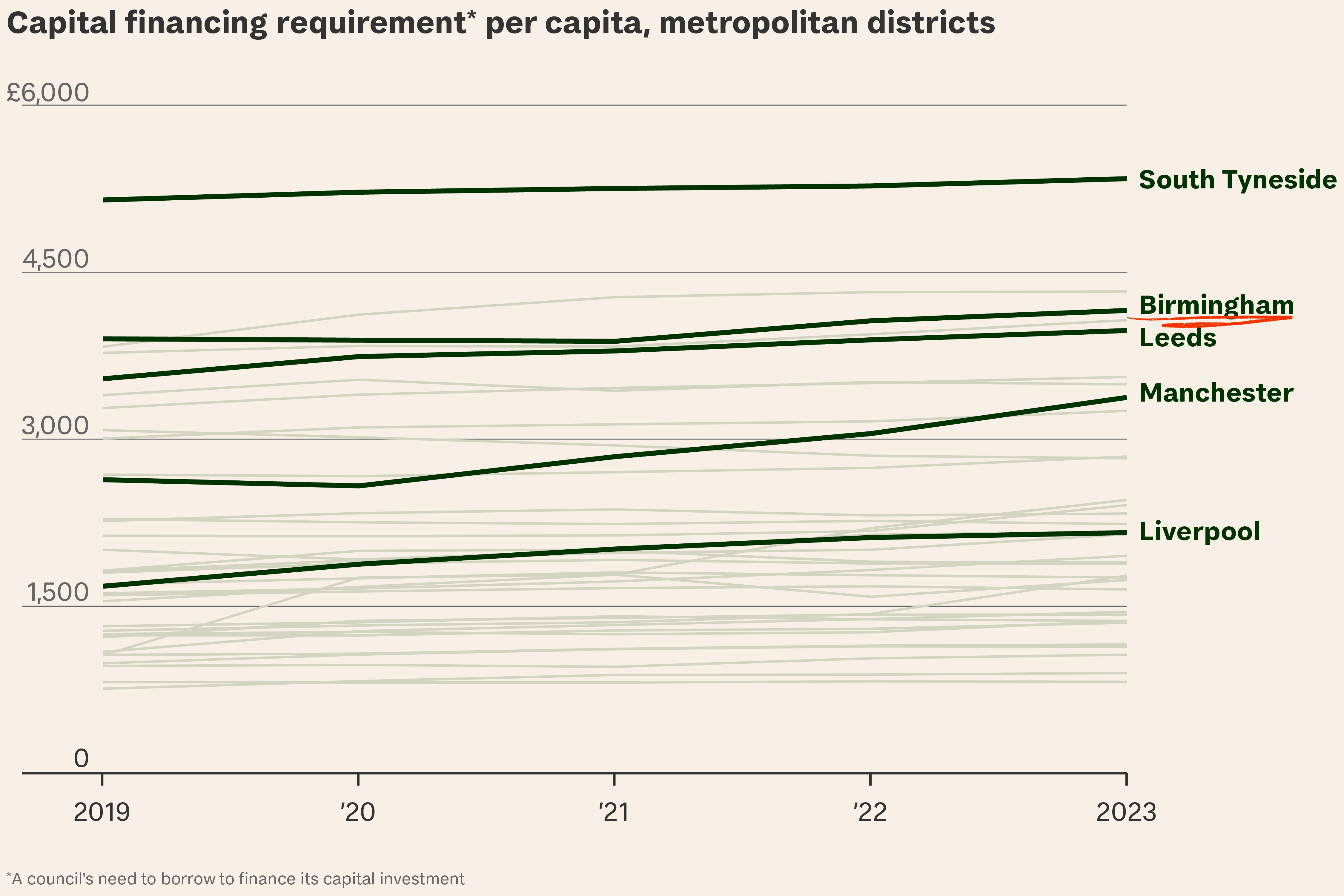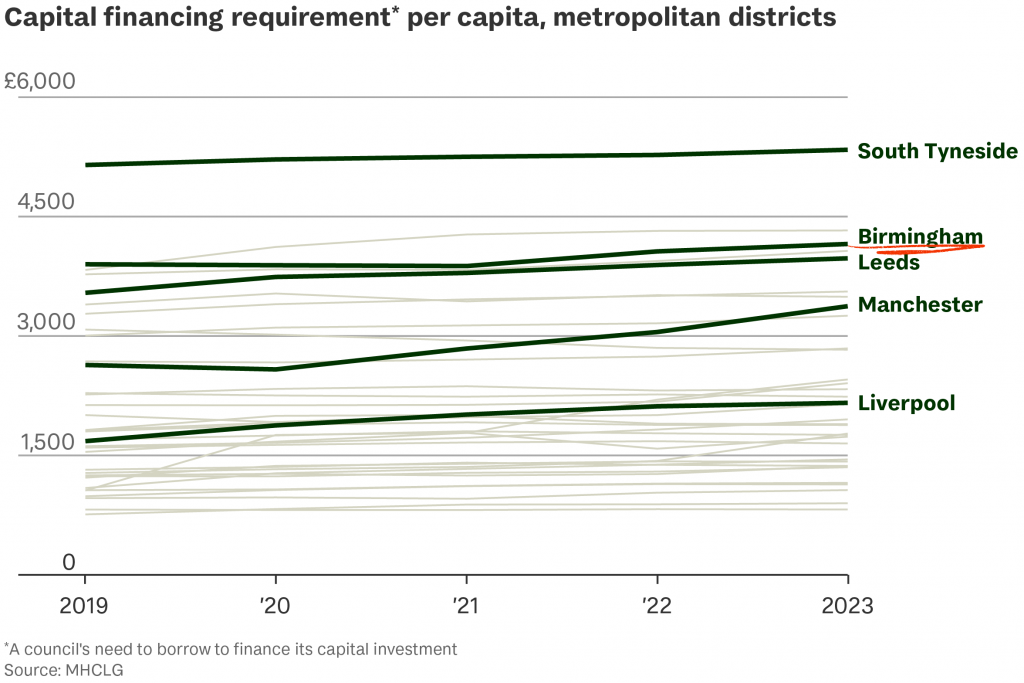
Vulnerable teenagers are bearing the brunt of a funding crisis a decade in the making
Budget cuts at the UK’s biggest local authority have led to youth workers being told at a virtual meeting that their jobs were being “deleted” en masse.
So what? That leaves 23 workers to serve 200,000 14-19 year-olds in Birmingham. Not all these young people are vulnerable, but many are. Looming restrictions on their access to support services including protection from abuse and nutrition for those in poverty are symptoms of a wider problem:
- Dozens of local authorities are close to bankruptcy because they are barred from running deficits and cannot unilaterally raise local taxes or borrow without special permission.
- As a result they cannot deliver the improved public services that central government has promised.
- Nor can they expect much mercy from the Chancellor in next week’s Budget.
The big picture. A quarter of England’s councils say they will probably have to apply for emergency support by 2026-27, according to a new survey by the Local Government Association.
- 19 have already been bailed out this year.
- One in ten in England have already had a conversation about emergency support.
- Two thirds say they are considering cuts that will affect support for children, young people and families.
The Birmingham picture. Birmingham city council went effectively bankrupt in September 2023 and has since continued to function only with the help of emergency loans.
- The cuts. In March, Birmingham announced it had to find £376 million in cuts – the largest budget cuts in local authority history. The proposals it announced to the youth services team would see a staff of 67 reduced to 23, with the entire youth support team of 37 staff gone. Sixteen youth centres are at risk of closure in the youngest city in Europe, where a third of the population is under 20, and 40 per cent is under 25.
Why cutting youth services matters. For young people living with domestic abuse, a youth centre is often the only refuge. Trusted youth workers who have built relationships with teenagers are often the first to hear safeguarding disclosures, and the youth clubs they work from run services which
- feed children who are living in poverty
- protect kids at risk of being sexually exploited and trafficked
- divert young people away from gang involvement, drugs and criminality
- offer better alternatives that enrich children’s lives: art, drama and music sessions, as well as mentoring from skilled workers who understand the pressures facing young people from difficult backgrounds.
Why is Birmingham bankrupt? The effects of not paying women fairly for decades have come back to bite the council, which is now liable for equal pay awards that will cost in the region of £650-£760 million. The installation of a new IT system has also been a £216 million disaster that the council has struggled to remedy.
Where’s next? Since 2018, 12 Section 114 notices – meaning a council has greater expenditure than it has income – have been issued by nine councils (including three by Croydon and two by Northamptonshire).
Money mismanagement? Yes. The cumulative effect of central government cuts over the last decade has hit councils hard. In addition
- record numbers of children are being taken into care, meaning money has to be poured into statutory children’s services; and
- the cost of adult services has soared.
As a result, councils desperate to generate income have invested in commercial property schemes leading to breathtaking losses when deals have collapsed, interest payments have risen, or returns are poorer than expected.

The upshot. It seems that Birmingham’s children are among those to be hit the hardest.
“The impact of cuts… is likely to be devastating,” says Leigh Middleton, chief executive of the National Youth Agency, responding to Birmingham’s proposals. “Cutting youth services might help save the pennies in the short term, but at what longer term cost, both to our young people and the other services burdened further down the line?”
What’s more… The loss of youth clubs and skilled social workers will likely lead to more children being neglected, harmed and exploited, with those at highest risk then taken into state care – at even greater public cost.











